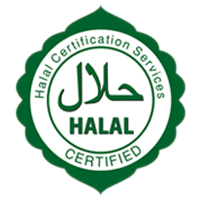HALAL

HALAL CERTIFICATION
Halal certification is a process where a credible organisation certifies that the products and or services offered by a company meet the specified halal standard. In the case of halal food certification, every stage of food processing is examined, “from farm to table”. Halal certification tells Muslims that they can lawfully consume a company’s products based on syariah principles. This provides consumer confidence and prevents any confusion about the halal status of a product. Halal certificates are given to companies that meet the criteria and they are allowed to use a halal mark on their products.
Halal product certification system also involves testing and inspection activities. The CB offering halal certification may subcontract the testing or inspection activity to another party. However, it is crucial for the CB to ensure the sub-contracted body or person is competent and complies with stipulated requirements relevant to testing, inspection or other technical activities.
Recent findings by IHI Alliance showed that less than five of the 57 Organisation of Islamic Conference (OIC) member countries have halal CBs. The requirements for halal CBs set in the OIC’s “Guidelines for Halal Certification Bodies” draft are broadly similar to those for CBs in other fields in that CBs must be impartial, have adequate resources in terms of finance, personnel and facilities to execute their duties; and are responsible for granting, maintaining, extending, suspending and withdrawing certification. In addition, to uphold the integrity of halal certification activities, it is necessary that a sufficient number of the CBs’ staff be Muslims. However, it is important to note here that the OIC guidelines for accrediting halal CBs have yet to be finalised